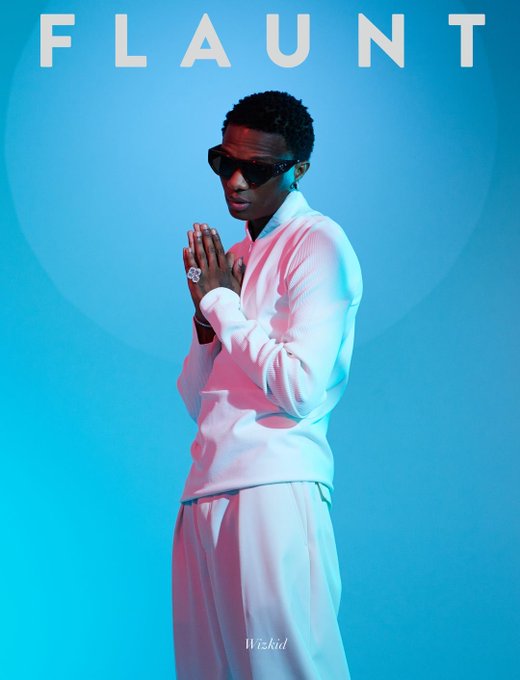Nigerian music superstar Ayodeji Ibrahim Balogun, better known as Wizkid, has achieved yet another milestone. With monthly earnings of $1 million on Spotify, he is now officially Africa’s highest-paid artist on the global streaming platform.
The figures, released by music analytics platform Chart Masters, underscore Wizkid’s dominance in the music industry. His remarkable earnings place him ahead of other prominent African artists, reaffirming Nigeria’s stronghold in the global Afrobeat scene.
Nigeria’s Afrobeat Titans Dominate Rankings
Hot on Wizkid’s heels is Grammy-winning sensation Burna Boy, whose monthly Spotify earnings total $782,148. In third place is the soulful Tems, who rakes in $660,210. The only non-Nigerian artist in the top four is South African singer Tyla, earning $607,804.
Other notable Nigerian artists rounding out the top 10 include Davido ($458,615), Asake ($451,553), and Ayra Starr ($400,972). Together, these figures showcase Nigeria’s unparalleled influence in shaping modern Afrobeat music.
Wizkid’s Journey to Global Stardom
Wizkid’s journey from Ojuelegba, Lagos, to the pinnacle of global music has been nothing short of extraordinary. His breakthrough came in 2010 with the hit single Holla at Your Boy. From that moment, Wizkid’s rise was meteoric.
In 2016, he cemented his international appeal by collaborating with Canadian rapper Drake on the chart-topping hit One Dance, a song that spent 15 weeks at number one on the Billboard Hot 100. His Grammy win for his feature on Beyoncé’s Brown Skin Girl further boosted his credibility as a global music icon.
Revolutionizing Afrobeat
Wizkid’s critically acclaimed album Made in Lagos, which features hits like Essence with Tems, has been a game-changer for Afrobeat. The album broke records, garnered international acclaim, and introduced African music to new audiences worldwide.
Speaking about his global success, Wizkid once said, “I always knew Afrobeat had the power to connect the world. It’s amazing to see the impact it’s making now.”
His latest project, More Love, Less Ego, continues to push the boundaries of Afrobeat, with themes of unity, love, and resilience that resonate deeply with fans across the globe.
A Global Comparison
While Wizkid leads Africa’s Spotify earnings, he still trails far behind global heavyweights like Canadian rapper Drake and American superstar Taylor Swift. Both artists earn over $7.7 million monthly on Spotify, showcasing the vast earning potential of the streaming industry.
Still, Wizkid’s $1 million monthly revenue places him among the world’s top earners, reflecting the growing acceptance and appreciation of Afrobeat music on the global stage.
Nigeria: The Afrobeat Capital
Nigeria’s dominance on the Spotify earnings chart highlights the nation’s position as the heart of Afrobeat. From Burna Boy’s African Giant to Tems’ ethereal vocals, Nigerian artists are continuously setting trends and reshaping global music narratives.
“The rise of Afrobeat is not just about the music; it’s about culture, identity, and storytelling,” said music critic Sola Akinwale. “Wizkid and his contemporaries are proving that African stories can captivate the world.”
Challenges and Triumphs
Despite his success, Wizkid’s journey has not been without challenges. The music industry in Nigeria is fraught with piracy, limited infrastructure, and underinvestment. However, platforms like Spotify are bridging the gap, offering artists a chance to monetize their craft effectively.
Moreover, Wizkid’s achievements serve as a source of inspiration for emerging talents. His success story is a testament to the power of resilience and the global appeal of authentic African sounds.
The Future of Afrobeat
As Wizkid and other Nigerian artists continue to shatter records, the future of Afrobeat looks brighter than ever. With increasing collaborations with international stars and growing recognition at global award platforms, Afrobeat is no longer just a genre; it’s a movement.
Wizkid’s milestone of earning $1 million monthly on Spotify is a clear indication of the genre’s global resonance. More importantly, it signals a shift in the global music landscape, where African artists are not just participants but key players shaping the industry’s future.
In the words of Wizkid, “This is just the beginning. African music is here to stay.”

